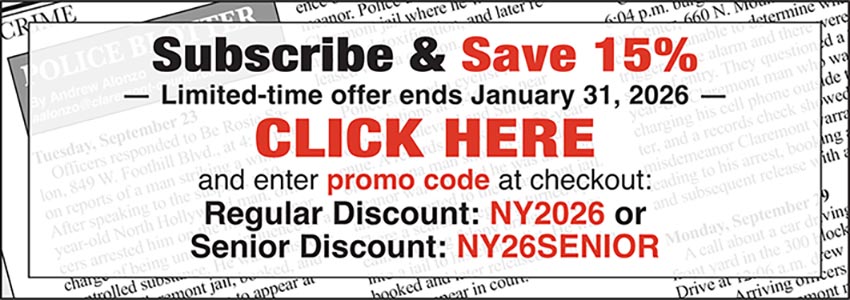They’s okay by me
by Mellissa Martinez
One of the great things about working at a college is that I am surrounded by youthful language changers. Not only do I get to hear many new expressions, but I’m also expected to step out of my comfort zone and attempt to understand, and perhaps even incorporate, some of the fresh takes on our long-established language.
At a recent school event, students introduced themselves before taking part in a discussion. Apparently standard protocol these days is for young adults to end their self-introductions with a pronoun tagline, as in…Hi. I’m Max, a sophomore at CMC. He, him, his.
When my turn came, I was a bit worried about getting my pronouns wrong (after all, I’d never been asked to list them), but I proceeded cautiously and nailed it: Hi. I’m Mellissa. I teach writing at CMC. She, her, hers.
Pronouns have seen a lot of linguistic action in the last decade; in fact, people are claiming and rejecting them in a way that hasn’t been done for centuries. Just last month Merriam-Webster endorsed the singular non-binary use of the ‘they.’
To clarify, the term non-binary describes people who feel that their gender is both male and female, or neither. In recent years, some people in this group have voiced the collective opinion that they aren’t comfortable being referred to as him, her, she, or he.
The proposal to use ‘they’ seemed shocking at first to some, but when you think about it, we have been using they as a placeholder for a singular person whose gender is unknown for a long time.
Although ungrammatical, it’s not uncommon to say someone dropped their phone on the ground. I’ll turn it in in case they come looking for it. This particular use doesn’t feel like an error. The new, non-binary use of ‘they,’ however is a bit trickier because it still feels like an error to most of us.
For example, if say, I’ll return the phone to them knowing that I’m referring to one person who I know, my brain shoots out a signal which tells me that I’m making a mistake. I need to consciously remind myself that I’m not—I’m simply getting on board with our changing language.
Not surprisingly, people have opinions about this transformation. We all have emotions around language. Our identities are tied up in the way we speak.
We are inculcated from a young age—through parents, teachers, the media—with ideas about how to speak and how to interpret those who speak differently.
There is recent evidence, however, from Sweden indicating that the addition of a non-binary pronoun can actually change cultural beliefs. Swedish, like English, has gender-marked person pronouns: hon (she) and han (he).
In 2012, a children’s author deliberately created a third non-binary option, hen, and controversy ensued; some newspapers banned its use, while others embraced it. Seven years later, a new study suggests that the culture is shifting and hen is now widely used among a variety of people. This type of language change is especially uncommon. Linguists point out that open classes of words, such as nouns, verbs and adjectives, are in a constant state of flux. In English, they acquire new members every year as is evidenced by Merriam-Webster’s other additions: Deep State, Rhoticity and Dad Joke, among others.
Closed classes of words are function words that have very little lexical meaning—items like pronouns, prepositions and conjunctions. They typically don’t change. Just try to imagine creating a word—let’s say ‘flub’—to replace ‘in.’
‘They’ has been defined as a plural pronoun since the 1300s. This means that there will be a lot of disgruntled traditionalists that have a hard time getting behind the official rebranding. To them I say, if ‘thou,’ ‘thy,’ ‘thine’ and ‘ye’ can be replaced by forms of ‘you,’ hundreds of years ago, then ‘they’ can handle a little added responsibility in the 21st century.










0 Comments